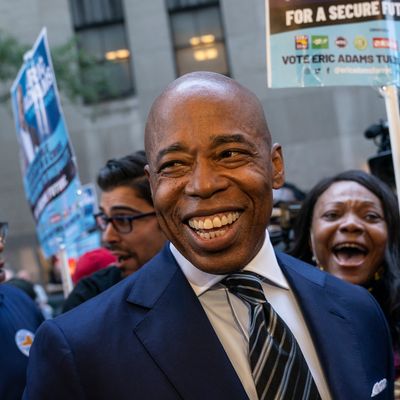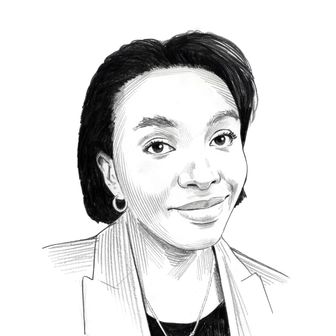
New York City has voted overwhelmingly to elect Eric Adams as mayor, making him the second Black person to hold the position in the city’s history when he is sworn into office next year. He’s poised to be one of the most powerful mayors in generations, with the backing of both working-class voters in the outer boroughs and the city’s rich and powerful Establishment.
Adams easily defeated his Republican challenger, the Guardian Angels founder Curtis Sliwa, and has cemented his position as one of the nation’s most prominent Democrats outside of Washington.
An hour after polls closed, Adams strode onto the stage of his Brooklyn victory party to the sounds of “The Champ Is Here,” by Jadakiss, grinning widely and embracing his brother who introduced him. The next mayor thanked his supporters and called for an end to personal division, asking the crowd to “take off the intramural jersey” and wear one jersey for “Team New York.”
Adams, 61, campaigned on his biography in a way that resonated with the Black and Latino working-class voters who made him the Democratic nominee to begin with. Born in Brownsville and raised in South Jamaica as one of six children, Adams frequently recounts his story of being the victim of police brutality when he and his brother were arrested and beaten by cops as teenagers. In an unlikely turn, Adams then joined the ranks of police, first as a transit officer during the dizzying heights of New York’s violent crime wave in the 1980s and then as an NYPD officer. There, he became a fierce critic of the force for its brutality against minorities, founding a group called 100 Blacks in Law Enforcement Who Care, which aimed to ease tensions between police officers and the communities of color in which they patrol.
His role as cop turned critic gave him a bright media spotlight and a launching pad for a political career following his retirement. After a brief, abortive run for Congress in the 1990s, Adams was elected in 2006 to represent central Brooklyn in Albany as a state senator for four terms. In 2013, he ran for office closer to home: Brooklyn borough president, a stepping stone for a long-suspected run for Gracie Mansion.
Adams cut an unlikely figure to win the Democratic nomination for mayor, entering the 2021 race just months after energetic protests in the city against police brutality following the murder of George Floyd at the hands of cops. Calls to “defund the police” were rampant, leading Mayor Bill de Blasio and the City Council to trim the NYPD’s budget. Adams is attempting to thread the needle on these issues, promoting himself as an ex-cop who has criticized the force, but will ultimately still be tough on crime. At a time where many of his Democratic counterparts are pushing for reform measures and even the redirection of funds from local departments to social services, Adams has said he would bring back a variation of stop and frisk and would revive a controversial plainclothes anti-crime unit with a new mission of stopping the flow of illegal guns.
The primary began with Adams vying for the front-runner position with Andrew Yang, followed by liberal hopefuls Scott Stringer, the current city comptroller, and Maya Wiley, former counsel to Mayor Bill de Blasio. As the June primary ticked closer, Yang’s position flagged and Stringer’s candidacy imploded following a historic accusation of sexual harassment. Adams then faced his own controversies, ranging from questions about his residence to his ties to unsavory political allies. Wiley tried to consolidate the left, but came up short as the first-ever citywide use of ranked-choice voting winnowed her candidacy in the final rounds of ballot tabulations. Adams was left facing Kathryn Garcia, the former sanitation commissioner who was catapulted toward the front of the pack thanks to a New York Times endorsement and who made a late-stage pact with Yang to stop Adams. In the end, he bested her by 8,426 votes.
Days after the primary election, Adams made it clear he thought his success in the race was sending a message.
“I am the face of the new Democratic Party. Look at me and you’re seeing the future of the Democratic Party,” Adams said during a national media blitz. “If the Democratic Party fails to recognize what we did here in New York, they’re going to have a problem in the midterm elections and they’re going to have a problem in the presidential elections.”






























